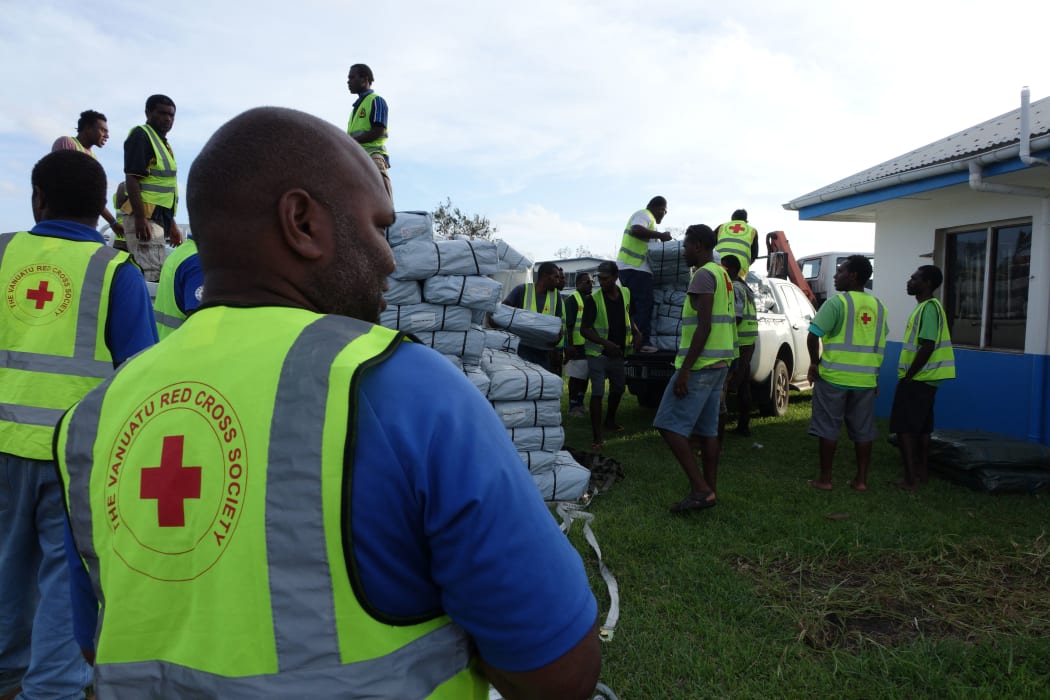A survey has found New Zealanders' donations to non-government organisations and charities has fallen 15 percent in the past 10 years.

Vanuatu Red Cross workers unload relief supplies brought in on a New Zealand airforce plane. New Zealanders' annual donations to NGOs have dropped by $18 million since 2005. Photo: RNZI / Koroi Hawkins
The report - by umbrella agency the Council for International Development - showed charities and NGOs operating in New Zealand took 56 percent of their $182 million funding in 2015 from the public.
However, financial support from the public dropped to $102.4 million in 2015, from about $120 million in 2005.
While New Zealanders were more engaged in global disaster situations, sponsorships of children - which accounted for 40 percent of revenue for the measured organisations - had fallen for the fourth consecutive year.
CID director Josie Pagani said the fall in revenues was not because the public had lost faith in NGOs, but because people were becoming more likely to give money directly to causes, or through other methods like Givealittle.
The organisations were developing new public funding strategies, Ms Pagani said.
"Rather than a message which says we'll take your dollar and 80 cents of that will get to the field and 20 cents will help us run our organisation - and that's still absolutely true, NGOs need an operating budget - but it's almost like they're looking at a model where they're saying, 'We'll invest it for you, we'll take your dollar and turn it into $1.60".
The report also showed that more than two-thirds of the organisations that responded to the survey had a private sector partner, up from one-third the previous year.
International NGOs were collaborating more, with 63 percent working with another NGO.
The report noted that the Ministry of Foreign Affairs and Trade was turning its funding attention more specifically toward the Pacific region.





